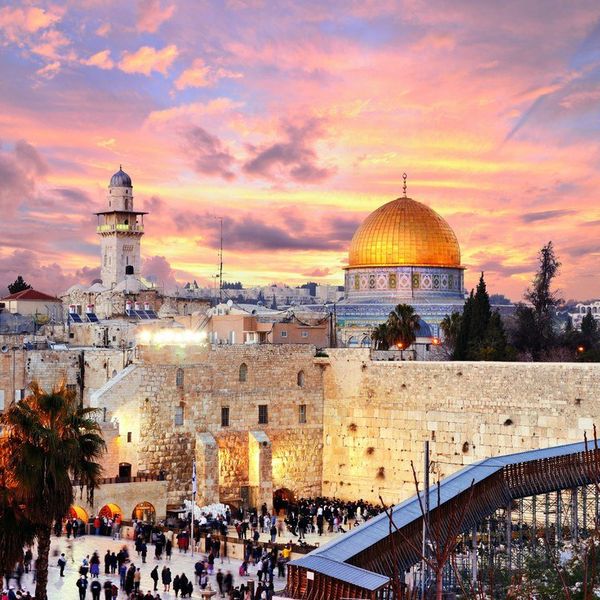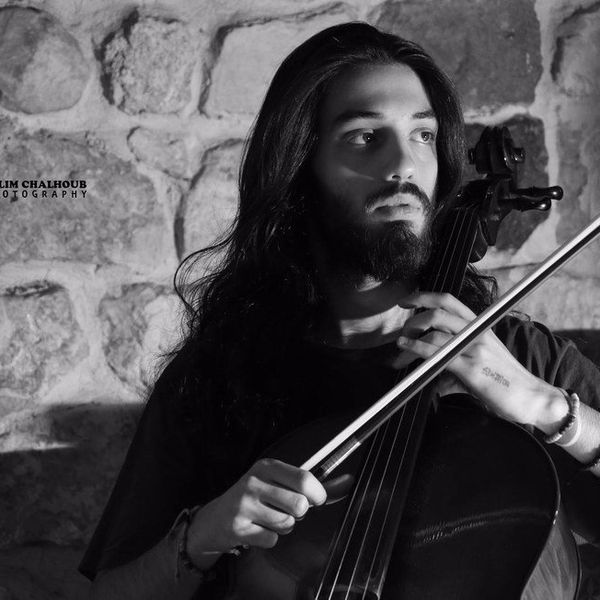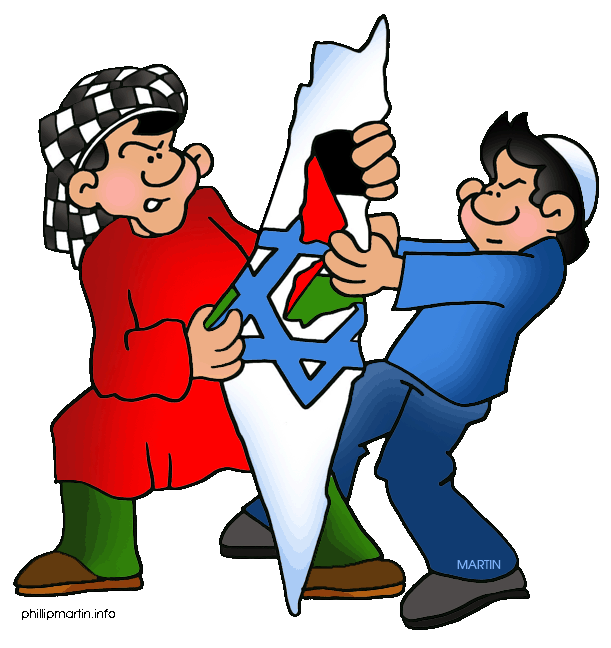The conflict between the Israelis and the Arabs over the Holy Land of Palestine has been chaotic and tense, plaguing the region since 1948. On one side, you have the Israelis, buoyed by the ideology of Zionism, firmly intent on creating a Jewish homeland. They wish to reestablish their roots in Israel, a land that was the ancient Jewish homeland until Roman times. The Zionist movement started in the late 19th century, but it did not gain widespread support until after WW2 with the impact of the Holocaust and postwar turmoil. Large-scale Jewish immigration occurred, and the Jews were promised their own state in 1948 by the British. This caused conflict with the local Arab population, who were influenced by their own version of Arab nationalism.
They came to identify themselves as Palestinians, the Arab inhabitants of the Holy Land. While the majority of Palestinians were Muslim, there was a significant presence of Christians. They came to fear the settlers, who began trickling in at the end of the 19th century. When the Ottoman Empire collapsed and the British took over Palestine, they began allowing even more Jewish settlers into the region. The growing power and influence led to tensions between both ethnic groups; the British fanned the flames to maintain power in the area.
With the aftermath of WW2 and the Holocaust, hundreds of thousands of European Jews decided to move to Palestine, motivated by the trauma and devastation of the Holocaust. They no longer felt safe in Europe and understandably so. This empowered the Zionist movement, which also had the advantage in support and sympathy from Britain. The British, amidst violence and fighting between Zionist paramilitaries and Palestinian militias, announced a plan to partition the region into Arab and Jewish states. The Arabs were enraged at this concession and began retaliating; this led to a civil war in Palestine between the Jews and the Arabs. The Jews eventually declared their independence in May 1948 and established the state of Israel.
This was caused by the intervention of Arab states like Syria and Egypt in the conflict. After a bloody conflict, the Israelis managed to defeat the Arab nations and assert their dominance in the region. They asserted control over a large part of what was supposed to be Arab territory, but the West Bank and Gaza Strip remained occupied by Jordan and Egypt. These are now the two main Palestinian territories today. Subsequent wars would lead to Israel taking over these two regions and the Sinai Peninsula, but they would gradually withdraw and let the Palestinians govern themselves, but with significant military supervision and strict laws. The Palestinians, desperate for their own state, rebelled several times and suffered internal divisions; the West Bank fell under the moderate, pro-peace Fatah party and the Gaza Strip under the fundamentalist Hamas party. Current issues include Hamas attacks against Israel, the Israeli blockade of the Gaza Strip, and Israeli settlements in the West Bank.
The current situation is very tense and complicated; both sides are responsible for certain atrocities and human rights violations against each other. For example, Israeli soldiers and Hamas used children as human shields during the Gaza-Israel conflict. The main conflict, however, essentially boils down to who has the right to live in the land and establish a state: the Israelis or the Palestinians. The Palestinians claim that they have a right to live in Palestine; they claim that they have lived there for centuries and are the descendants of the ancient inhabitants of the land during Roman times. This part is certainly true; Palestine experienced a massive influx of Greeks and Romans during the Roman rule while most of its Jewish population was exiled after rebelling against Rome one too many times. These inhabitants, along with the remnants of the Jewish population and other groups, later mostly converted to Christianity. Then the Arabs came and introduced Islam and the Arabic language; the inhabitants became Arabized due to their rule and the influx of Arabs into the region. They have lived there for centuries through various wars, empires, and rulers; they have maintained their Arabic identity until this time. When the Jewish settlers entered Palestine, they were in a land already settled by the Palestinians.
The Israelis have their own arguments on why they have the right to exist. Here they are (taken from the following http://www.israelvideonetwork.com/list/the-10-most-important-arguments-in-defense-of-israels-right-to-exist/):
1. The Jewish People Have a Right to a Country of their own in Their Historic Homeland
It used to be their homeland, history does show that. But by that same logic, Palestine has been the historic homeland of the Palestinians. And thus they also have the right to their own country. Hence the need for a two-state solution.
2. The Jewish People have Maintained a Continuous Presence in the Land of Israel.
This is also true. Judaism was never fully wiped out in Israel, but the Jews became a minority in their homeland. Other people migrated to the region like Greeks, Persians, and Arabs. Hence the culture and tradition of the land became completely different than what it was during say the first century AD.
3. The Jewish People Settled and Developed the Land.
The Jews definitely had great success in setting up farms and greatly increasing food production in the region. But this isn’t really a very good argument because Palestine was under a feudalist system for centuries. And the entry of the British didn’t help matters either. If they had the opportunity to develop and have more agriculture, they would have done so.
4. “Palestine” was NEVER an Arab Country.
While this is true, it was a key region of various Arab states and caliphates. While the Palestinians never setup their own independent state, they would have identified themselves as Arabs if you went back in time and asked them. The Christian population would have probably identified themselves separately by religion, but even they mostly spoke Arabic themselves. It was clearly “Arab” territory for centuries.
5. The International Community Granted Political Sovereignty in Palestine to the Jewish People.
This is the case today, but only most of the international community and because of what happened in Europe to the Jewish people during WW2. This influenced their decisions to favor the Jews over the Arabs in Palestine. 31 countries in the UN do not recognize Israel today, most of which are Muslim countries. So theres a good chunk of the world that does not recognize Israeli sovereignty.
6. The Territory was Captured in Defensive Wars.
This is true; the Israelis were motivated to defend themselves and avoid a potential repeat of the Holocaust. But the Palestinians also felt their cause was a defensive one
7. Israel is the only Stable Country in the Middle East.
Well it’s been the most stable so far. But the UAE, Jordan, and Saudi Arabia have been very stable since the 1940s.
8. Zionism is the National Liberation Movement of the Jewish People, Not Western Colonialism
Depends on who you ask.
9. Israel is Making the World a Better Place.
That itself is true in terms of technology.
10. God Promised the Land to the Jewish People.
The Bible does say that, but that was all part of the Old Testament. The New Testament, if one considers that, gets rid of the special status of the Jewish people and extends the whole message to the Gentiles. That was the whole reason Jesus came as the Messiah: to allow other people to be saved through his sacrifice.
Israel does have an overall right to exist, but so does a Palestinian state. A two-state solution, or maybe even a unified, multi-ethnic Palestine is the only correct, viable solution. Its time for both sides to put aside their nationalisms and sit on a good ol' negotiating table.




















